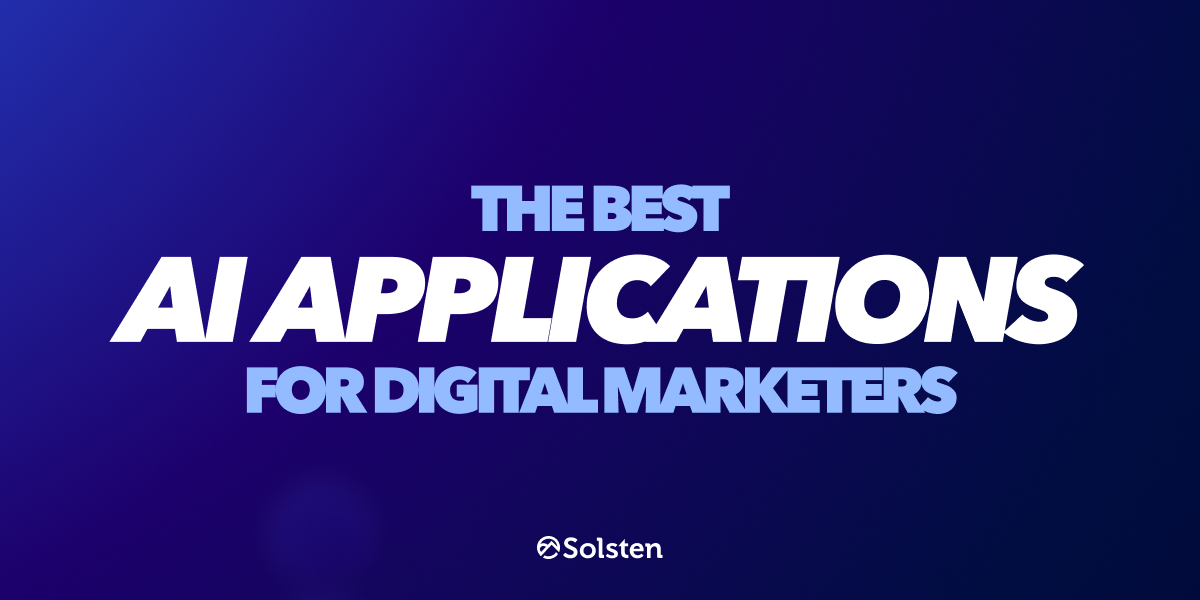Key Takeaways
- 69% of marketers are currently using AI, with early adopters saving 5+ hours per week
- Psychological AI represents the next frontier, moving beyond behavior analysis to understand the “why” behind customer decisions
- Elaris is the world’s first conversational AI that provides instant audience psychology insights through natural conversation
- Traditional AI tools focus on what customers do; advanced tools like Elaris reveal why they do it
- Implementation success requires starting small, maintaining human oversight, and focusing on strategic objectives
The marketing landscape has completely transformed since AI burst onto the scene, but most tools still miss the fundamental question: why do customers really behave the way they do? While traditional AI tools analyze what people do, the next generation, like Elaris, reveals the psychological “why” behind every decision.
Whether you’re a seasoned AI power user looking to level up your tech stack, or someone who’s still skeptical about handing the creative reins to a robot, you’re in the right place. We’ve been obsessively watching these tools evolve from clunky novelties to indispensable teammates.
Half way through 2025, there are too many AI marketing tools to sort through, and far from all of them are created equal. Some have genuinely transformed how we connect with audiences, while others are just shiny objects that collect digital dust the second after handing over your email address.
So we’ve rolled up our sleeves and put together this straightforward guide to the AI applications that are actually worth your time; the ones that have earned a permanent spot in smart marketers’ daily workflows.
What Is an AI Marketing Application?
An AI marketing application is a tool or platform that uses artificial intelligence to perform marketing tasks that would traditionally require significant human time and expertise.
Core AI Marketing Functions
Artificial intelligence mimics human cognitive functions by:
- Processing vast datasets to identify hidden patterns
- Making informed decisions based on data analysis
- Learning and improving performance over time
- Generating predictions about future behavior
- Automating complex decision-making processes
The Elaris Example
For example, Elaris uses AI-powered psychological insights to help marketers understand their audiences through natural conversation. The process works like this:
- Ask a question: “What motivates my fitness audience?”
- Get instant insights: Receive psychological traits, values, and motivations
- Apply insights: Use data to create resonant marketing strategies
By processing millions of psychological profiles combined with behavioral data points, Elaris reveals information that would be impossible to gather through traditional research methods.
How AI Applications Are Transforming Marketing
The statistics speak for themselves: 69% of marketers are currently using AI, with adoption rates increasing rapidly across all company sizes.
Key Marketing Transformations
AI and marketing have become inseparable partners. Modern AI applications help marketers:
- Make data-driven decisions faster – Reduce analysis time from weeks to minutes
- Generate creative content and campaigns – Automate copywriting and creative ideation
- Understand audience psychology and preferences – Move beyond demographics to motivations
- Optimize customer journeys and touchpoints – Personalize experiences at scale
- Predict market trends and consumer behavior – Anticipate changes before they happen
- Personalize experiences at scale – Deliver relevant content to millions of users
- Improve marketing ROI – Optimize spending across channels and campaigns
Time Savings and Efficiency
Most importantly, AI applications free up valuable time. A Salesforce study found that marketers save an average of 5+ hours per week by using AI. This time can be redirected toward:
- Strategic thinking and planning
- Creative initiatives requiring human insight
- Relationship building with customers
- Innovation and experimentation
How to Choose the Right AI Marketing Tools
The AI landscape has grown exponentially in recent years. ChatGPT launched in November 2022 and reached 100 million monthly users in just two months, a growth trajectory that dwarfs other platforms like TikTok and Instagram.
Selection Criteria for AI Marketing Stack
With thousands of AI applications now available to marketing teams, strategic selection is crucial. Consider these factors:
Strategic Alignment
- Goal compatibility: Choose applications that align with specific marketing objectives
- Challenge resolution: Focus on tools that address your biggest pain points
- Workflow integration: Ensure new tools enhance rather than disrupt existing processes
Technical Considerations
- Budget considerations: Balance cost against potential ROI and time savings
- Functionality scope: Identify which marketing tasks would benefit most from automation
- Integration capabilities: Verify compatibility with existing marketing technology stack
- Data privacy compliance: Ensure applications handle customer data according to regulations
- Learning curve: Consider time investment required for team adoption
Performance Metrics
- Measurable outcomes: Define clear success metrics before implementation
- Scalability potential: Choose tools that can grow with your organization
- Support quality: Evaluate vendor support and training resources
The Best AI Marketing Applications by Category
While ChatGPT, Claude, and other generative AI tools are the most well-known names, the marketing AI ecosystem offers specialized solutions for every marketing function.
Psychological AI: The Next Frontier
Understanding your audience at a psychological level (beyond basic demographics or behaviors) represents the foundation of effective marketing. The most advanced marketing AI now goes beyond behavior to understand psychology.
Elaris: Conversational Audience Psychology
What it does: The world’s first conversational AI that instantly reveals audience psychology through natural conversation and instantly creates content that resonates.
Key capabilities:
- Instant psychological analysis: Ask “What psychological traits drive my customers?” and get immediate insights
- Audience segmentation: Identify distinct psychological profiles within your customer base
- Content creation: Write marketing copy, generate ads, and draft marketing emails, all powered by exclusive psychological insights
- Competitive analysis: Understand the psychology of competitor audiences
- Message optimization: Generate psychologically-optimized copy for specific segments
- Market opportunities: Discover underserved psychological segments in your market
How it works:
- Ask any question about your audience in natural language
- Receive insights into motivations, values, and psychological drivers
- Get actionable marketing recommendations based on psychological data
- Apply insights to campaigns, content, and customer experience
- Ask Elaris to create content for any of 100,000+ audiences
Best for: Marketers, content creators, and founders seeking to create resonant content, gain deeper audience understanding, write copy that psychologically converts, and move beyond demographic targeting.
Alternative Content Creation Tools
- Jasper: Creates marketing copy for various channels, adapting to different brand voices and content styles
- Copy.ai: Generates compelling marketing content, including headlines, product descriptions, and ad copy
- Surfer SEO: Uses AI to create SEO-optimized content by analyzing top-performing pages
- Grammarly Business: Offers tone analysis and brand-aligned language suggestions for marketing communications
Personalization and Customer Experience
Delivering personalized experiences at scale represents one of AI’s most powerful marketing applications.
Personalization Platforms
- Dynamic Yield: Personalizes customer interactions across web, mobile, and email using AI
- Optimizely: Uses machine learning to optimize website experiences through A/B testing
- Persado: Generates marketing language that resonates with specific audience segments
Marketing Analytics and Predictive Insights
Understanding past performance and predicting future trends gives marketers competitive advantages through AI-powered analysis.
Analytics and Prediction Tools
- Google Analytics 4: Incorporates AI to provide predictive metrics and behavioral insights
- Brandwatch: Uses AI to monitor social media mentions and provide sentiment analysis
- Albert: Autonomous marketing platform that optimizes campaigns across channels using AI
Conversational Marketing and Chatbots
AI-powered conversation tools enable 24/7 customer engagement and lead qualification.
Chatbot and Conversation Platforms
- Salesloft: Uses conversational AI to engage website visitors and qualify leads
- Intercom: Provides AI-powered chatbots for customer support and lead capture
- Tidio: Offers customizable chatbots that integrate with various marketing platforms
Marketing Automation and Optimization
Traditional marketing automation is being enhanced with AI to enable more intelligent decision-making.
Automation Platforms
- HubSpot Marketing Hub: Incorporates AI for content ideas and email optimization
- Marketo Engage: Uses predictive modeling to identify high-conversion leads
- Seventh Sense: Optimizes email marketing by determining ideal send times for individual recipients
Implementation Best Practices for AI Marketing Tools
Successful AI implementation requires strategic thinking and careful management. Here are proven best practices for marketing teams adopting AI applications.
Step 1: Clarify Your Objectives First
Before selecting AI applications, clearly define what you want to achieve:
- Improve customer understanding through psychological insights
- Boost content creation efficiency with automated copywriting
- Optimize campaign performance through predictive analytics
- Enhance personalization at scale across touchpoints
Starting with clear objectives helps you choose tools that address specific needs rather than being distracted by impressive but irrelevant capabilities.
Step 2: Start Small and Scale Gradually
Don’t overhaul your entire marketing approach at once. Best practices include:
- Begin with one application that addresses a well-defined challenge
- Example approach: Start by using Elaris to ask “What motivates my target audience?”
- Develop psychological personas before expanding to AI-powered content creation
- Allow team adaptation and build confidence gradually
- Measure impact more easily with focused implementation
Step 3: Balance Automation with Human Oversight
While AI can automate many marketing tasks, human judgment remains essential:
- Establish review processes for AI-generated outputs
- Maintain brand alignment through human oversight
- Ensure ethical compliance with human decision-making
- Apply creativity and strategy that only humans provide
Step 4: Invest in Team Training and Development
For maximum value from AI applications, teams need proper training:
- Master new tools through comprehensive training programs
- Develop interpretation skills for AI-generated insights
- Participate in peer learning sessions with other users
- Partner with AI specialists for advanced implementation
Step 5: Maintain Data Quality and Ethics
AI applications are only as good as their data sources:
- Establish data governance practices for quality assurance
- Ensure unbiased information access for AI tools
- Maintain transparency with customers about AI usage
- Comply with privacy regulations across all applications
Step 6: Measure Impact and Refine Your Approach
Regular assessment ensures AI applications contribute to marketing goals:
- Define success metrics: Time saved, performance improvements, satisfaction increases
- Track consistently across all AI implementations
- Refine strategies based on performance data
- Identify expansion opportunities for further AI adoption
The Future of AI in Marketing: Beyond Automation
While many marketers initially approach AI as automation for repetitive tasks, its true potential lies in transforming how we understand and connect with customers.
The Psychological Revolution
The next frontier of AI in marketing focuses on psychological insights and predictive capabilities. Tools like Elaris represent this evolution:
- Moving beyond behavior to understand motivations
- Instant psychological analysis through conversational interfaces
- Deep audience understanding that drives resonant messaging
- Predictive insights about future consumer needs
- Resonant content creation powered by psychological data
Advanced AI Capabilities Coming Soon
As AI continues evolving, we expect applications to become increasingly sophisticated:
Predictive Psychology
- Predict emerging consumer needs before they’re explicitly expressed
- Identify psychological shifts in target audiences over time
- Anticipate market changes based on psychological trend analysis
Adaptive Content Creation
- Generate creative concepts aligned with audience psychology
- Create truly adaptive content that responds to individual psychological profiles
- Optimize entire customer journeys across multiple touchpoints simultaneously
Market Opportunity Discovery
- Identify untapped market opportunities based on psychological unmet needs
- Discover audience segments not currently served by competitors
- Map psychological gaps in existing market categories
Practical AI Evolution Examples
Ask Elaris questions like:
- “Why do my customers choose competitors over us?”
- “What psychological traits should I target in my next campaign?”
- “Which underserved psychological segments exist in my market?”
Get insights that would traditionally require months of market research, delivered instantly through natural conversation.
Human Intelligence Enhanced, Not Replaced
It’s natural to worry that AI applications will eventually replace human creativity and strategic thinking. However, our experience shows a different reality.
AI as Enhancement Tool
AI applications are tools that enhance human capabilities rather than replace them:
- Handle repetitive tasks efficiently and accurately
- Analyze vast datasets beyond human processing capacity
- Generate useful starting points for creative development
- Free marketers to focus on uniquely human skills
Uniquely Human Marketing Skills
The most successful marketing teams balance AI capabilities with human strengths:
- Empathy and emotional understanding
- Creative vision and strategic thinking
- Ethical judgment and decision-making
- Relationship building and communication
- Cultural sensitivity and context awareness
The Optimal Balance
The future belongs to marketing teams that find the right balance:
- Use AI for what machines do best: data analysis, pattern recognition, automation
- Apply human intelligence for what people do best: strategy, creativity, empathy, ethics
The future of AI in marketing goes beyond automation to include psychological understanding. Tools like Elaris represent this evolution, moving beyond what consumers do to instantly reveal why they do it. This psychological insight enables marketing that resonates at a human level, creating genuine connection in an increasingly automated world.
Frequently Asked Questions
What makes psychological AI different from traditional marketing AI?
Answer: Traditional marketing AI analyzes what customers do, like their behaviors, clicks, and purchases. Psychological AI like Elaris reveals why they do it by understanding their motivations, values, and psychological drivers. This deeper insight enables marketing that resonates at an emotional level rather than just targeting behavioral patterns.
How quickly can AI tools like Elaris provide audience insights?
Answer: Elaris provides instant psychological insights through natural conversation. Ask “What motivates my fitness audience?” and receive comprehensive psychological analysis in seconds, compared to traditional market research that takes weeks or months. The conversational interface makes complex psychological data immediately accessible and actionable.
What’s the average time savings from implementing AI marketing tools?
Answer: According to Salesforce research, marketers save an average of 5+ hours per week by using AI applications. However, time savings vary significantly by tool type and implementation scope. Content creation tools often provide the most immediate time savings, while psychological AI tools like Elaris deliver deeper strategic value.
Should small businesses invest in AI marketing tools or focus on established platforms?
Answer: Small businesses should start with one AI tool that addresses their biggest challenge. For audience understanding, Elaris offers enterprise-level psychological insights at accessible pricing. For content creation, tools like Jasper or Copy.ai can dramatically improve efficiency. Start small, measure impact, then expand gradually.
How do you measure ROI from AI marketing tool implementation?
Answer: Measure ROI through specific metrics like time saved, campaign performance improvements, conversion rate increases, and customer satisfaction scores. For psychological AI tools like Elaris, track message resonance, audience engagement improvements, and reduced customer acquisition costs. Define baseline metrics before implementation for accurate comparison.
What’s the biggest mistake marketers make when implementing AI tools?
Answer: The biggest mistake is trying to implement too many AI tools simultaneously without clear objectives. Start with one tool that addresses a specific challenge, ensure proper team training, and establish human oversight processes. Many marketers also focus on automation benefits while missing strategic advantages like psychological audience understanding.
How does Elaris compare to traditional market research methods?
Answer: Elaris provides instant psychological insights that would traditionally require weeks of surveys, focus groups, and analysis. While traditional research offers depth through human interaction, Elaris delivers speed and scale by processing millions of psychological profiles. The conversational interface makes complex data immediately actionable for marketing teams.
Can AI marketing tools work for B2B companies or are they primarily for B2C?
Answer: AI marketing tools work effectively for both B2B and B2C companies. Psychological AI like Elaris helps B2B marketers understand the personal motivations behind business decisions. Content creation tools assist with thought leadership and sales materials. The key is choosing tools that align with your specific audience and sales process.
Ready to understand what truly motivates your audience? Try asking Elaris about your customer psychology and discover insights that transform how you connect with your market.



